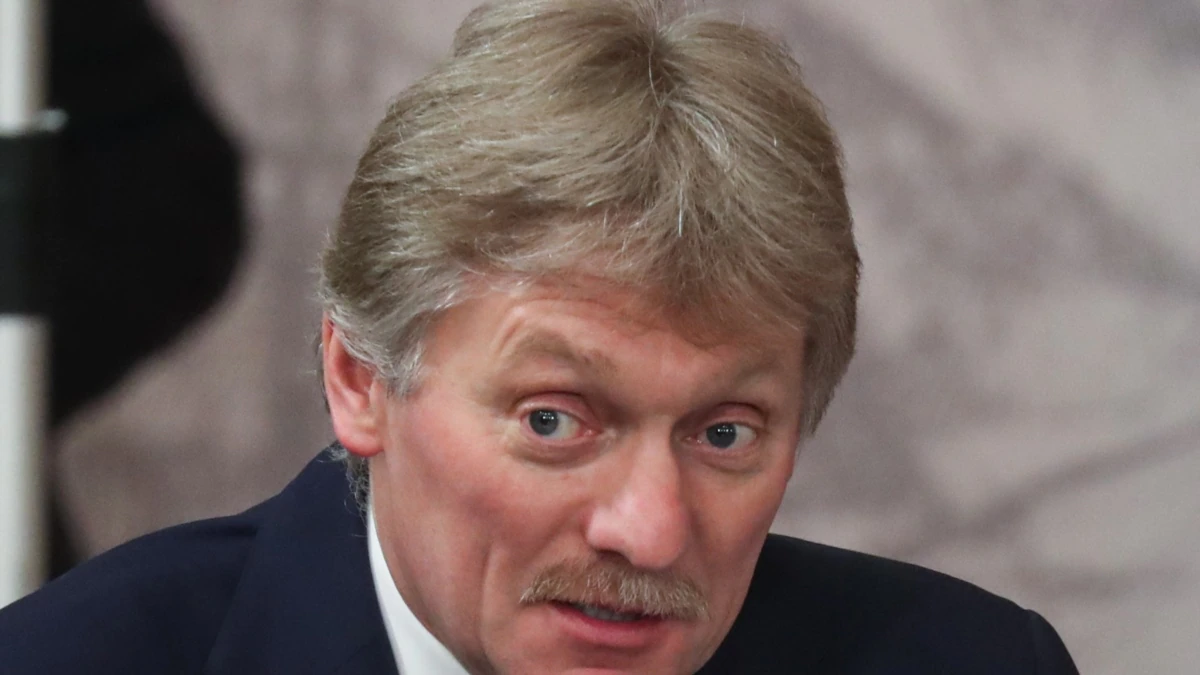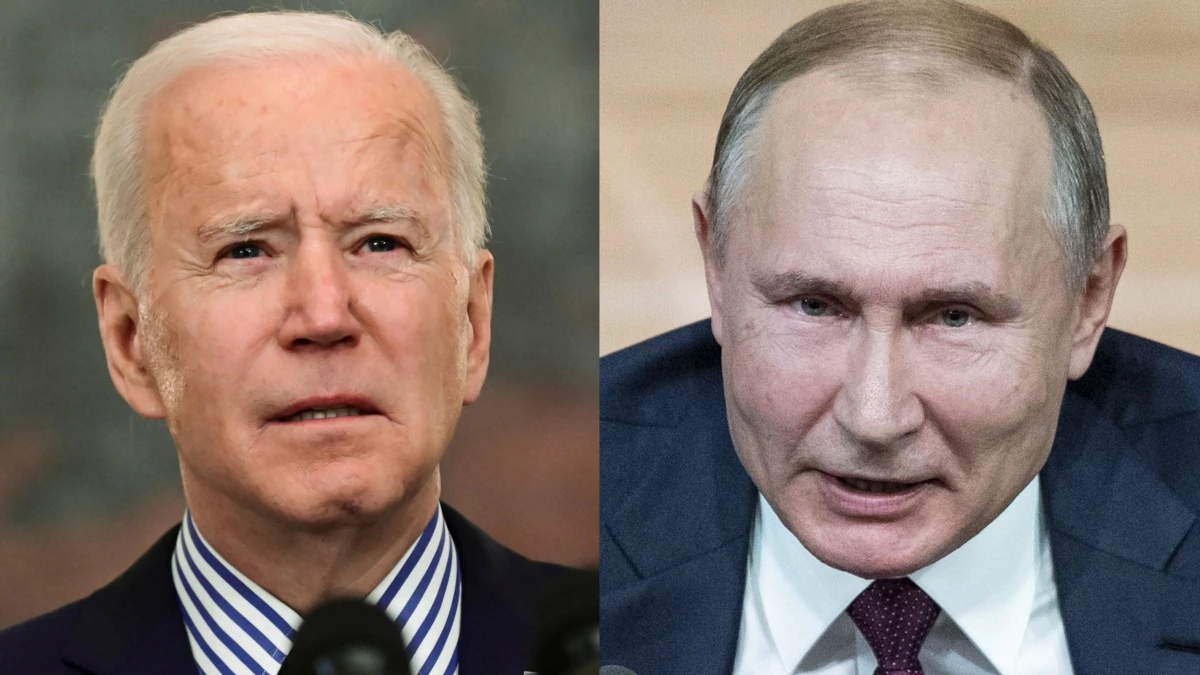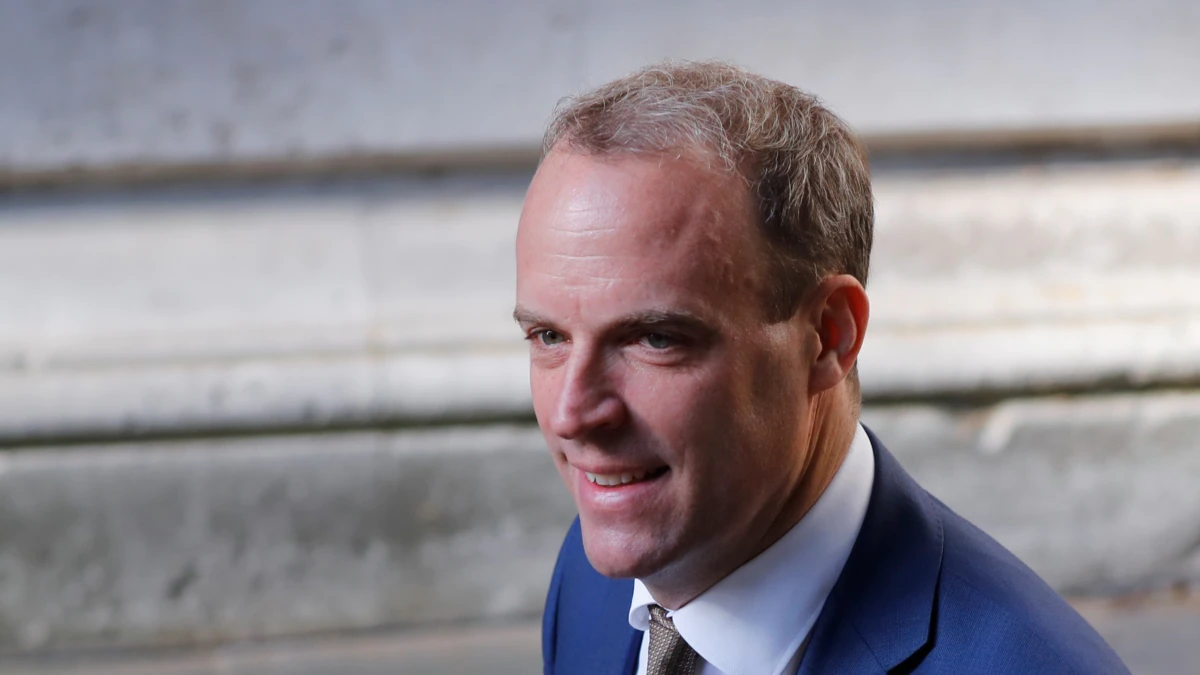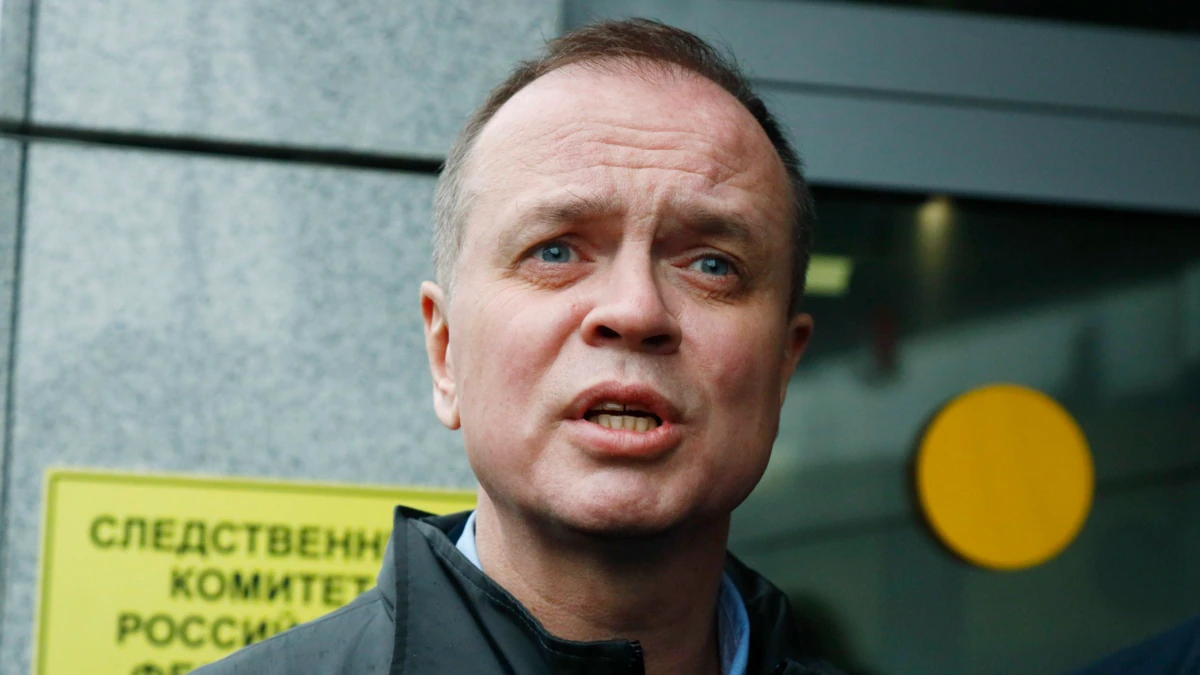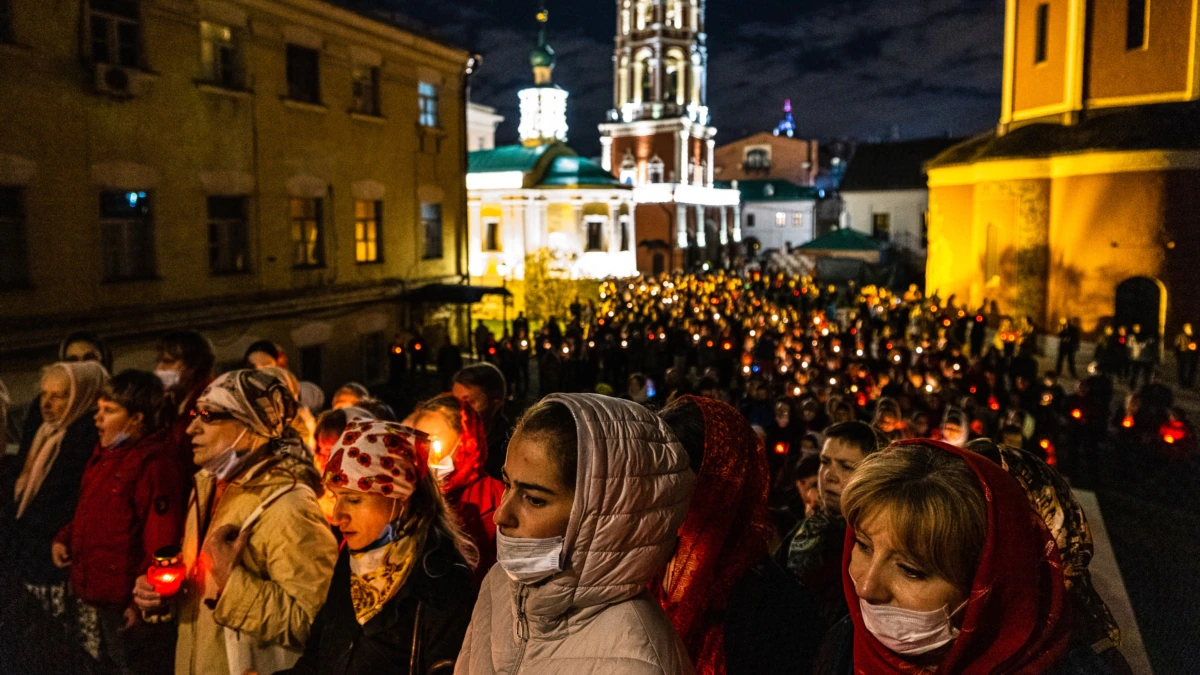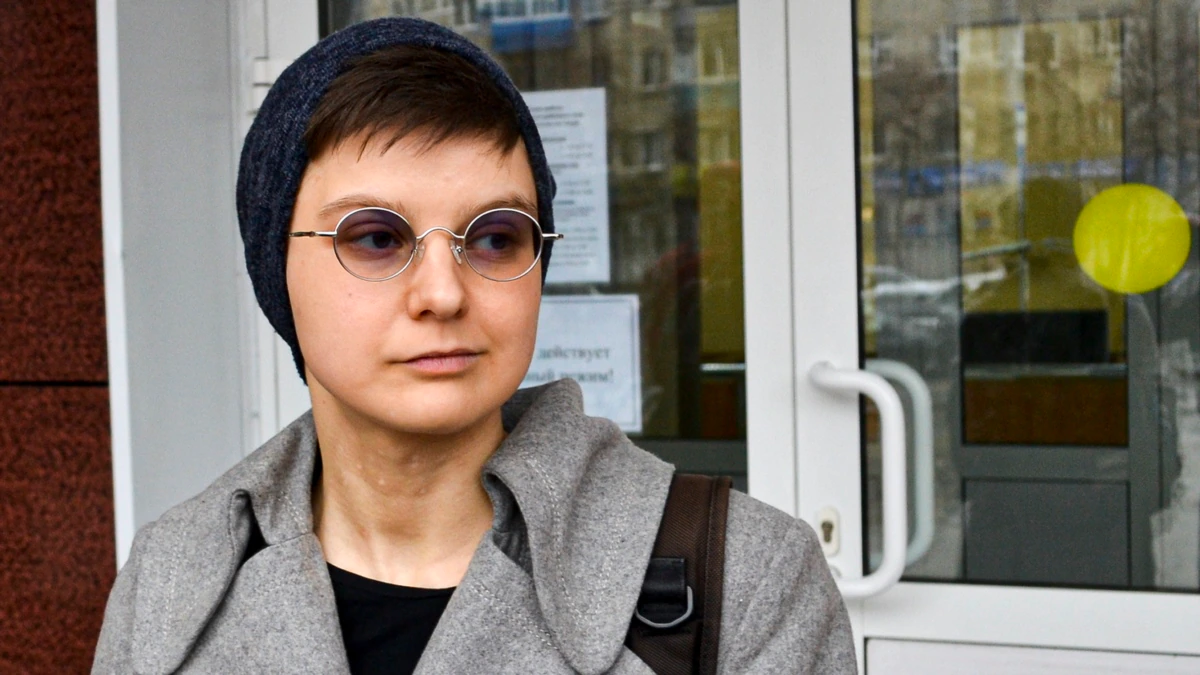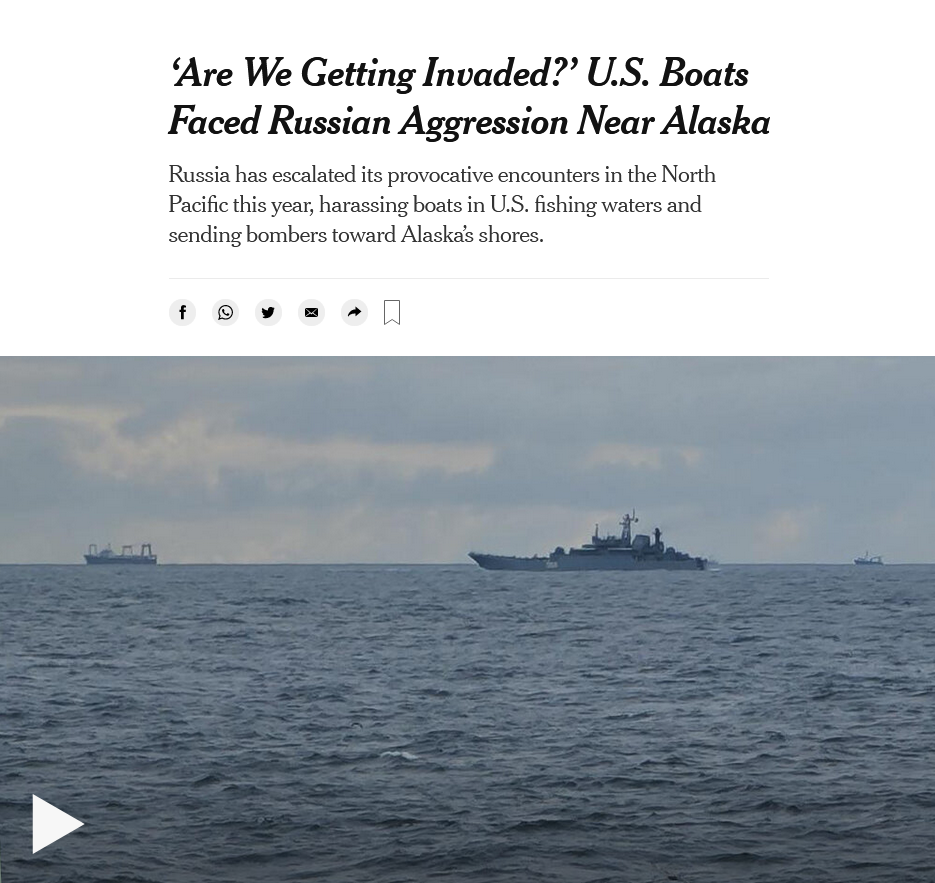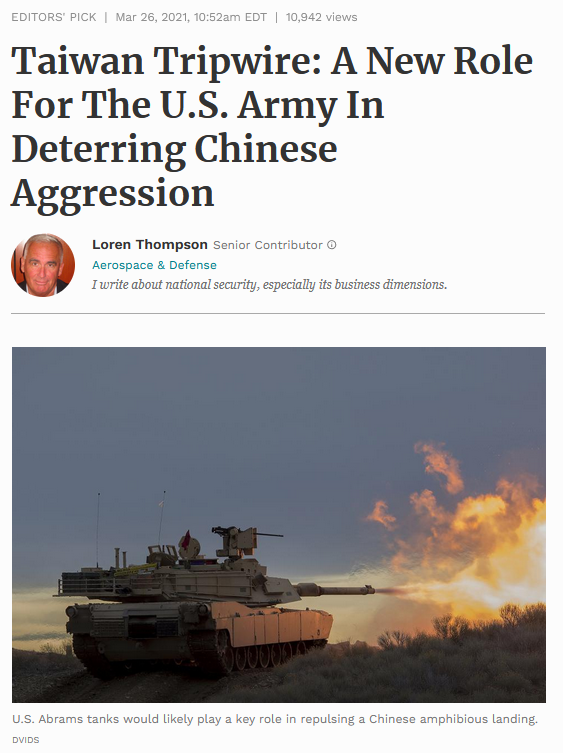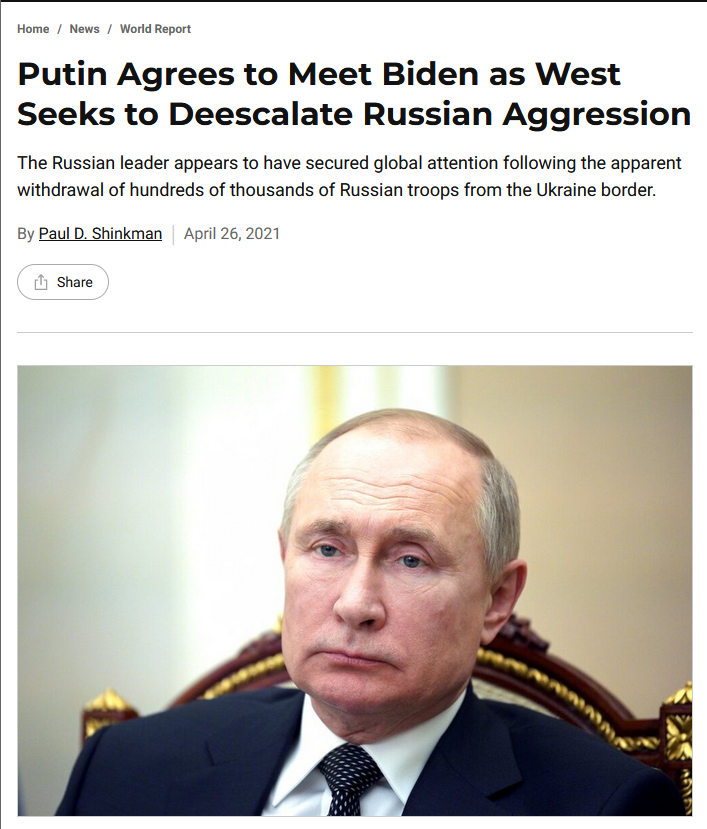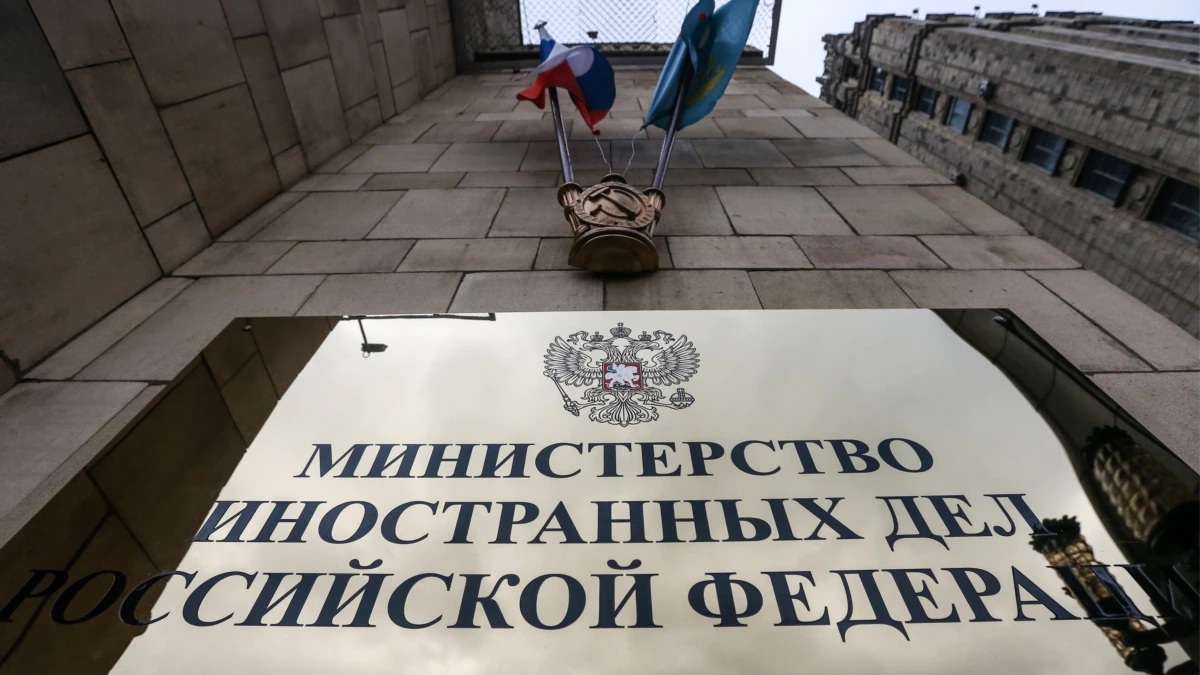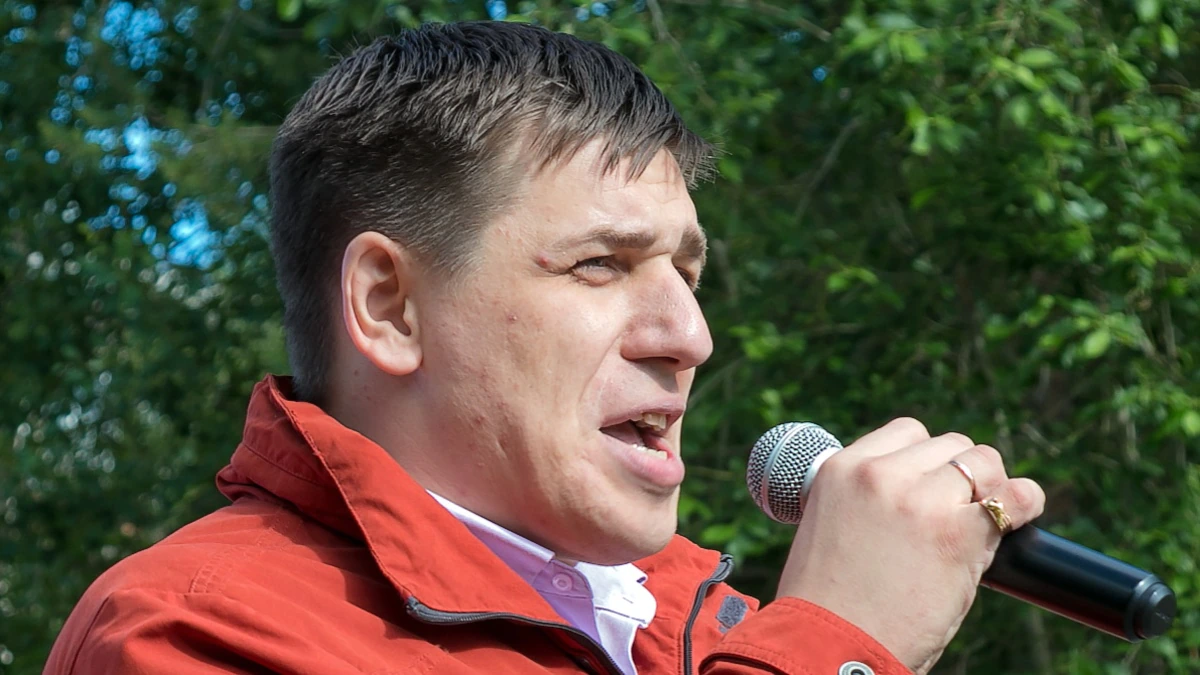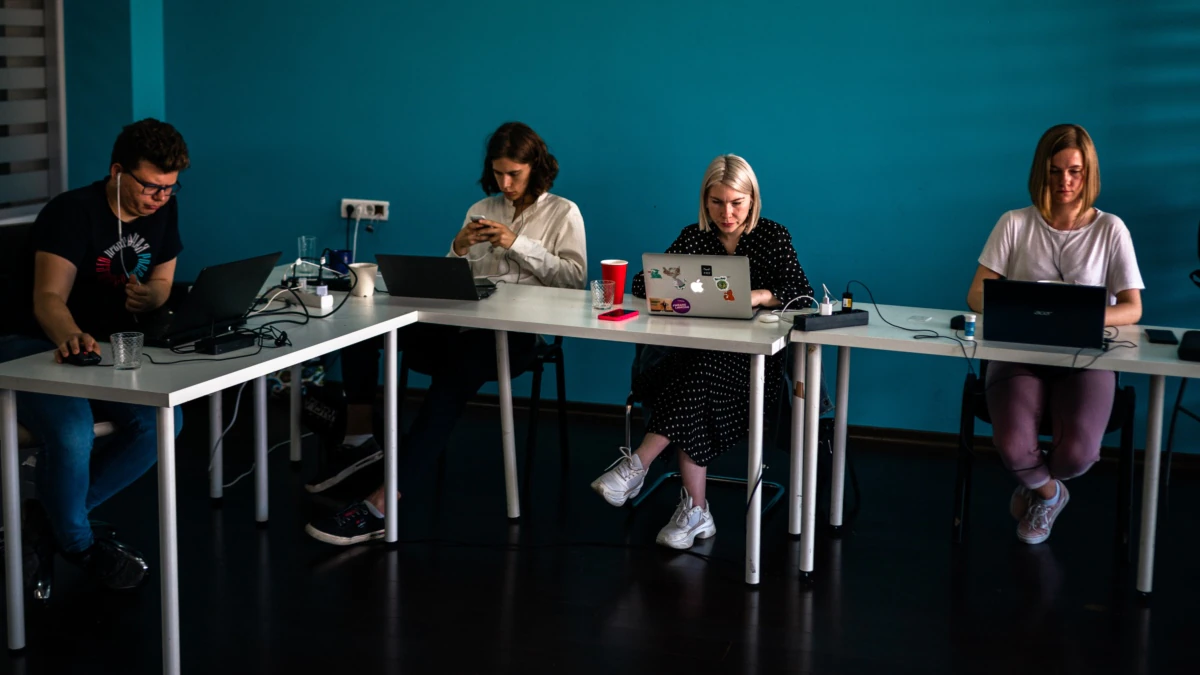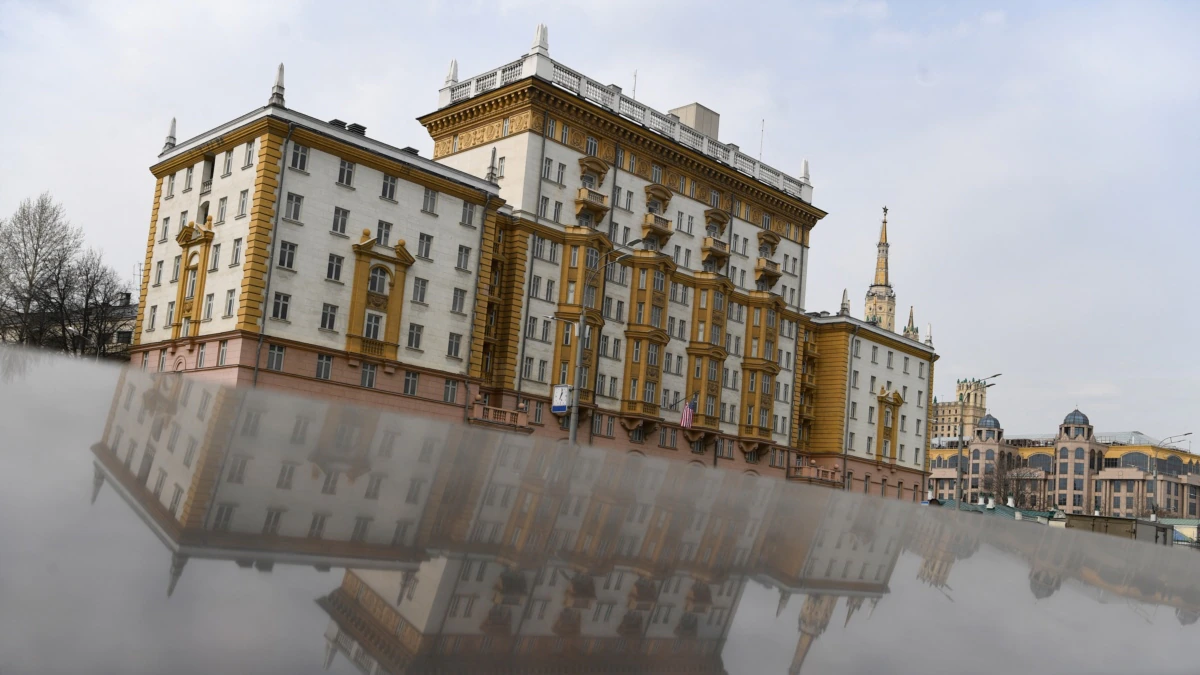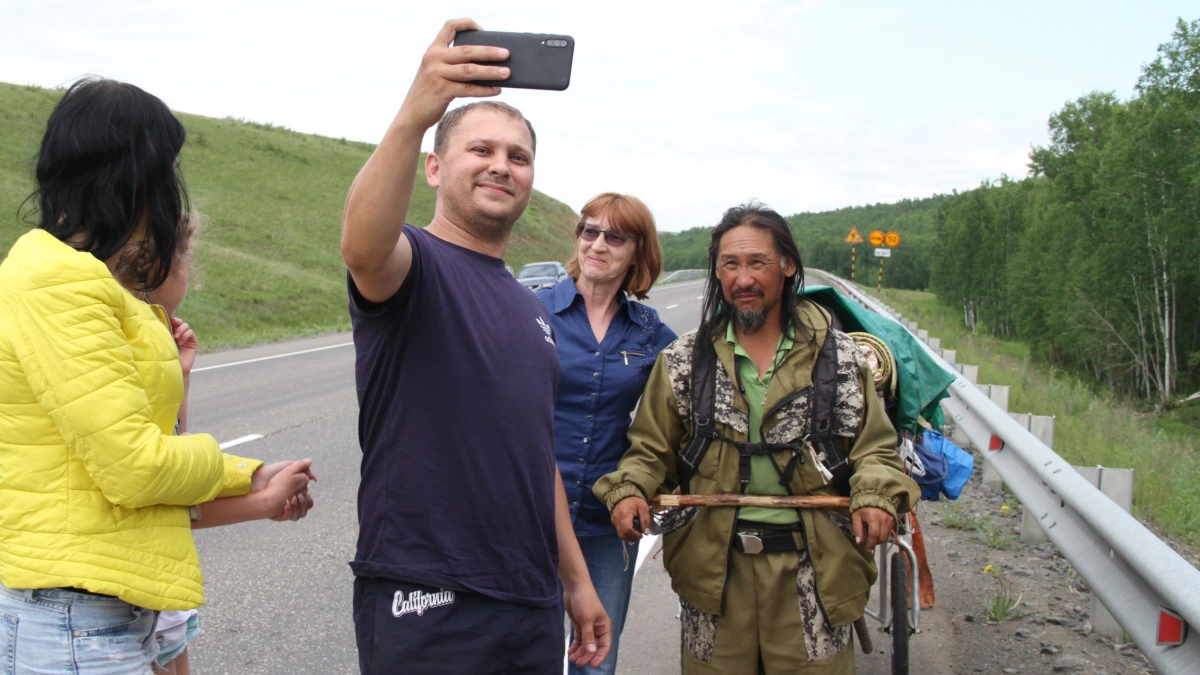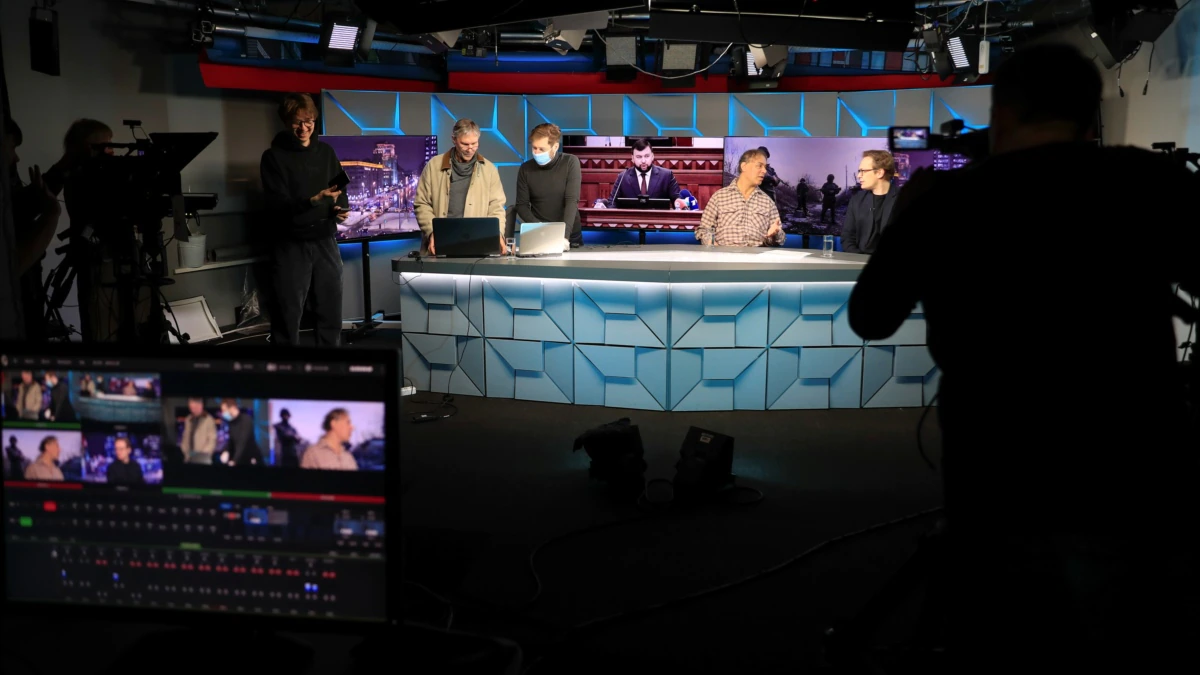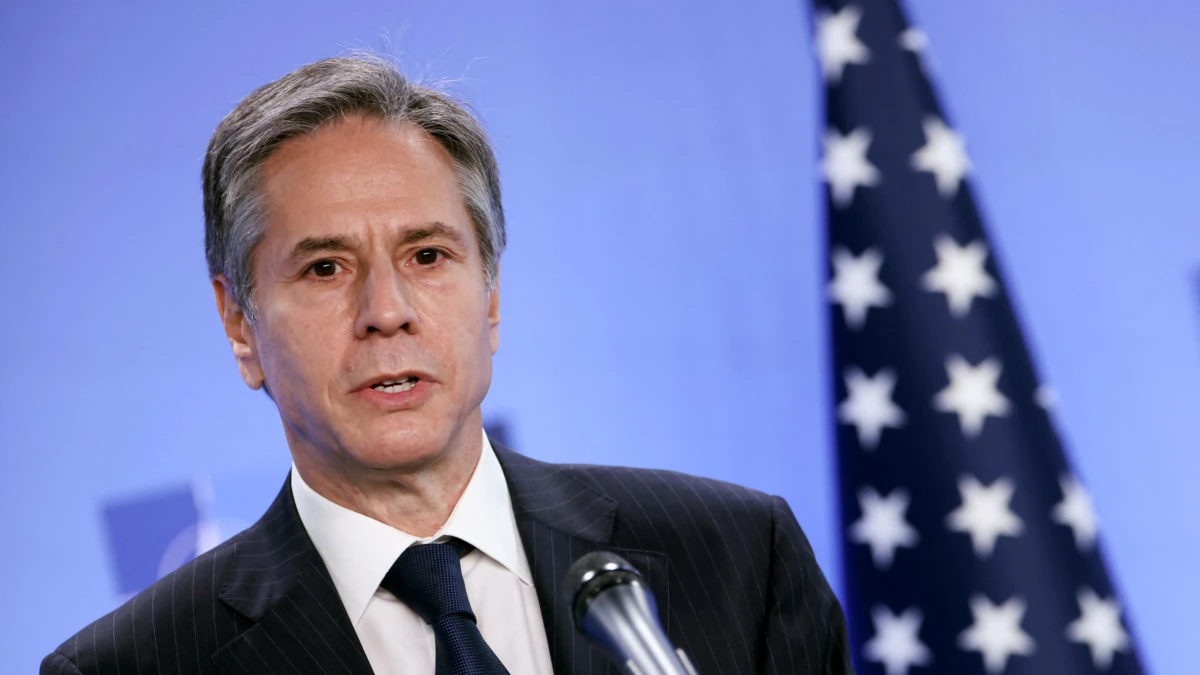As President Vladimir Putin’s government intensifies its crackdown on all forms of dissent, many Russians who oppose him have found inspiration in the closing remarks Moscow State University student Olga Misik made last week at her trial.
Writer Nikolai Kononov posted on Twitter that the speech Misik made in court on April 29 “will end up in school textbooks.”
St. Petersburg artist Yuly Rybakov shared Misik’s remarks in full on Facebook and wrote: “With such children, Russia does have a future!”
The student’s defiant speech joins the ranks of the impassioned courtroom addresses of dissidents that have characterized the two decades of Putin’s rule and go back at least as far as the Soviet era.
Misik and two other young defendants, Ivan Vorobyevsky and Igor Basharimov, are charged with vandalizing government buildings. In a gesture of support for those they consider political prisoners, they hung banners on a railing outside a Moscow district court on August 8, 2020, and then splattered red paint on a security booth outside the Prosecutor-General’s Office building. Prosecutors claim they caused 3,500 rubles ($47) in damages.
Defense attorneys say that the documents provided by prosecutors concerning the alleged damages were falsified and that no harm was caused by the water-soluble paint.
Under the charges, they could face up to three years in prison when Moscow’s Tverskoi District Court delivers its decision on May 11. Prosecutors, however, have asked for two years of “restricted liberty” for Misik and one year and 10 months for the other defendants, according to the independent OVD-Info monitoring agency. During the trial, the defendants have been under a limited form of house arrest, unable to leave home between 10 p.m. and 6 a.m., to approach within 10 meters of government buildings, to attend public events, or to use means of communication.
Misik, who turned 19 in January, has long been actively involved in protests against Putin’s government. She attracted national attention in August 2019 during a protest against the government’s decision to disqualify virtually all the opposition candidates running for seats on the Moscow City Duma.
Misik protested by reading the Russian Constitution out loud to a heavily armed phalanx of riot police in body armor – an act that for many distilled the relationship between the Russian state and the people in recent years.
In October 2019, she was detained on Red Square while conducting a one-person picket by holding up a large piece of blank paper.
In February 2020, she was detained in Penza while organizing a demonstration of support for the accused in the so-called Network (“Set”) case, which activists say was fabricated by the security forces.
In her closing speech to the court in the vandalism case, Misik insisted that she had never been afraid during her years of activism.
“I am often asked if I am afraid,” she told the court. “More often by people from abroad than those in Russia because they don’t know the specifics of our lives…. They don’t know the feeling of hopelessness that we take in with our mother’s milk. And that very feeling of hopelessness atrophies all signs of fear and infects us with a learned helplessness. What is the point of being afraid if your future does not depend on you.”
“I was never afraid,” she said. “I felt despair, helplessness, hopelessness, confusion, anxiety, despair, anger, but neither politics nor activism every infected me with the feeling of fear.”
‘Sad And Sickened But Not Scared’
Misik said she was not afraid when police came to arrest her in the middle of the night and threatened her with prison.
“I joked and laughed because I knew that as soon as I stopped smiling, I had lost,” she told the court.
She added that she was not afraid when the police van drove her away or when she remembered her father, whom she saw cry for the first time in her life.
“I was sad and sickened, but not scared,” she said.
Misik added, though, that she began to be afraid and to experience panic only after she found herself under modified house arrest.
“And now it seems to me that all the fear that has accumulated in me over the last nine months is concentrated here and now in my final speech, because public speaking is more frightening to me than the prospect of being sentenced,” Misik said.
“Someone once said that you can’t be afraid if you know that you are right,” she continued. “But Russia teaches us to be afraid all the time. It is a country that is trying to kill you every day. And if you are not part of the system, you are already as good as dead.”
She said that in her support of those unjustly imprisoned, she thought about her future children.
“When my children ask me what I was when all this happened, when they ask how I could allow this to happen and what did I do to fix it, I won’t have anything to tell them,” she said. “What can I say? That I held a picket outside the FSB? That is laughable.”
And then she asked Judge Aleksei Stekliyev: “And what about your children? When they ask you where you were when this happened, how will you answer them? That you handed down the guilty verdicts?”
She stated that she did not regret participating in the vandalism protest.
“If I could go back in time, I’d do it again,” she said. “Even if the death penalty threatened me, I’d do it again. And I’d do it again and again and again…. They say that repeating the same thing over and over and expecting a different result is madness. Then hope is madness. And ceasing to do what you consider right because everyone around you thinks it is hopeless is surrendering to helplessness. I would rather look insane to your eyes than helpless to mine.”
‘We Will Win’
She closed her speech with a reference to Sophie Scholl, a Munich university student who together with her brother, Hans, was executed by guillotine in 1943 for her resistance to the regime of Nazi dictator Adolf Hitler.
“She was condemned for leaflets and graffiti, while I have been tried for posters and paint,” Misik said. “Essentially, we were both persecuted for thought crimes. My trial has been very similar to Sophie’s trial and today’s Russia is very similar to fascist Germany. Even facing the guillotine, Sophie did not abandon her convictions and her example has inspired me not to seek a deal. Sophie Scholl is the embodiment of youth, sincerity, and liberty. And I really hope that I am in this way like her.”
“The fascist regime collapsed in the end, just as the fascist regime in Russia will fall,” she said. “I don’t know when this will happen – a week, a year, a decade. But I know that we will win because love and youth always win.”
The transcript of Misik’s speech has been shared widely on social media, and more than 45,000 people have signed an online petition calling for her release.
Andrei Chvanov, from Tatarstan, wrote on Facebook: “I just read her final speech. And you know what? I felt ashamed. Because my threshold of fear is much lower…. She holds strong, jokes, writes, and is 100 percent sure that she is right. And she is right. She sees the truth. And she is not afraid. Not many people in our country have such a gift.”
Another Facebook user urged people to “help Olga Misik, if only because her closing statement is the strongest closing statement of all those I have read.”
“It is a very powerful statement,” another user wrote on Facebook. “It will force the judges and prosecutors to think about what Russia will be like tomorrow. To see that there are inalienable human rights.”
RFE/RL’s Russian Service contributed to this report
This post was originally published on Radio Free.



